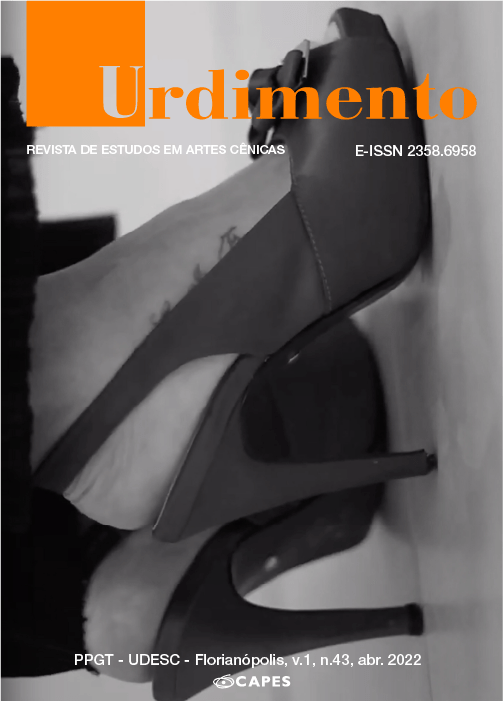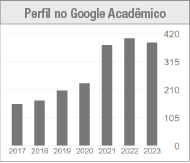A Four-Sided Anti-Doll: Eleanor Marx and 21st Century Socialist Feminism
DOI:
https://doi.org/10.5965/1414573101432022e0802Keywords:
Eleanor Marx, Feminism, Dramatic arts, SocialismAbstract
In this text, we commen on the work of the historian Rachel Holmes about the life of Eleanor Marx, recently translated into Portuguese. In reading the biography, her socialist activism as well as her career in theater, in which she worked from 1875 until the end of her life, stands out. In this sense, her role as a translator of proto-feminist works, such as Madame Bovary, by Flaubert and Casa de Muñecas, by Henrik Ibsen, from whom she translated other dramaturgical texts, is highlighted. Notable in the comment is the work carried out by the youngest daughter of Karl Marx, together with the Social Democratic Federation, the Socialist League and the Union of Gas workers, organizations in which she acted in the field of education, agitation and propaganda and translation, as well as in internationalist solidarity. In addition, her recognized militancy along with socialist feminism of the late nineteenth century stands out, a subjecton which she wrote The question of women - from a socialist point of view, in 1886.
Downloads
References
CRUZ, Cláudia Soares. Tradução teatral entre teoria e prática. Urdimento – Revista de estudos em Artes Cênicas, Florianópolis, v.2, n,35, p.263-280, 2019.
DEAN, Jodi. Camarada. Um ensaio sobre pertencimento político. São Paulo: Boitempo, 2021.
DONZELOT, Jacques. A polícia das famílias. Rio de Janeiro: Graal, 1980.
FLUSS, Harrison e MILLER, Sam. L’héritage d’ Eleanor Marx. Contretemps: Revue de critique marxiste. set. 2021, p.1-7. http:/www.contretemps.eu. Acesso em: 12 jan. 2022. (Tradução de Christian Dubucq).
FONSECA, Cláudia. História social da família: uma excursão interdisciplinar. Rio de Janeiro: BIB n. 27, 1989, p.51-73.
ENGELS, Friedrich. A situação da classe operária na Inglaterra. São Paulo: Boitempo, 2010.
LISSAGARAY, Hipollyte Prosper-Olivier. História da Comuna de Paris de 1871. São Paulo: Expressão Popular, 2021.
MARX, Eleanor e AVELING, Edward. A questão da mulher: de um ponto de vista socialista. São Paulo: Expressão Popular, 2021.
MARX, Karl. Sobre o suicídio. São Paulo: Boitempo, 2006.
MUSTO, Marcello. Marx-Engels Gesamtausgabe (Mega 2) y el redescubrimiento de Marx. In: MUSTO.M(org.) Tras las huellas de un fantasma. Siglo XXI, 2012, p.21- 62.
ROMANO, Lúcia. Casas e coisas do mundo de Nora: ou para onde o teatro pode ir quando uma mulher bate a porta atrás de si. Urdimento – Revista de Estudos em Artes Cênicas, Florianópolis. v.3, n.33, 2018.
SILVA, Ludovico. O estilo literário de Marx. São Paulo: Expressão Popular, 2012.
PICQ, Françoise. Journée internationale des Femmes: a la poursuite d’um mythe. Travail, genre et societé. Mars. n.3, 2000.
TARCUS, Horácio. La Bíblia del proletariado. Buenos Aires: Siglo XXI, 2018.
TRISTAN, Flora. União dos operários. Florianópolis: Editora Insular, 2017.
Published
How to Cite
Issue
Section
License
Copyright (c) 2022 Urdimento - Revista de Estudos em Artes Cênicas

This work is licensed under a Creative Commons Attribution 4.0 International License.
Copyright Statement
The articles published by the magazine are free to use. The copyright is all assigned to the magazine. The articles whose authors are identified represent the expression from the point of view of their authors and not the official position of the journal Urdimento. The author (s) undertakes whenever publishing material relating to the article published in Revista Urdimento mention the said publication as follows: This article was originally published by Urdimento magazine in its volume (put the volume), number (put the number) in the year of (put the year) and can be accessed at:
http://www.revistas.udesc.br/index.php/urdimento
This work is licensed under a Creative Commons Attribution 4.0 International License.




